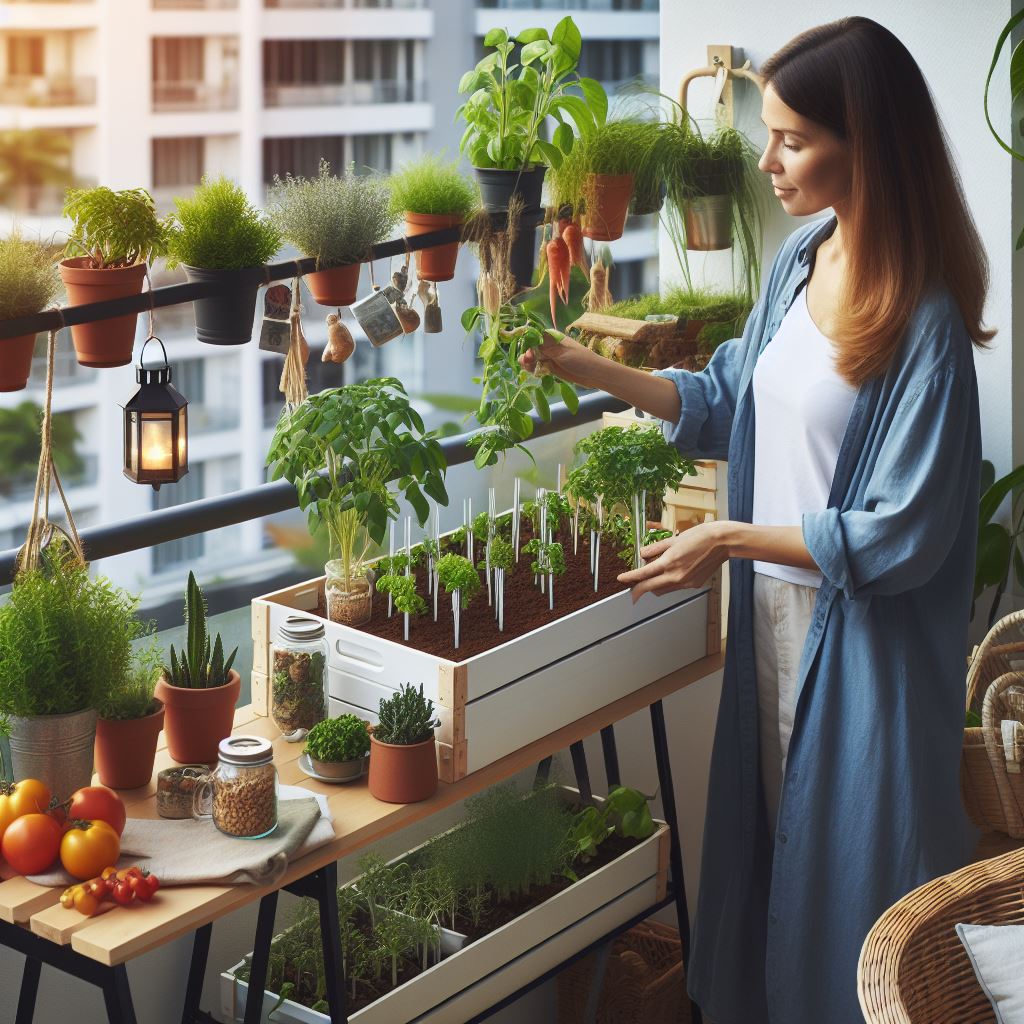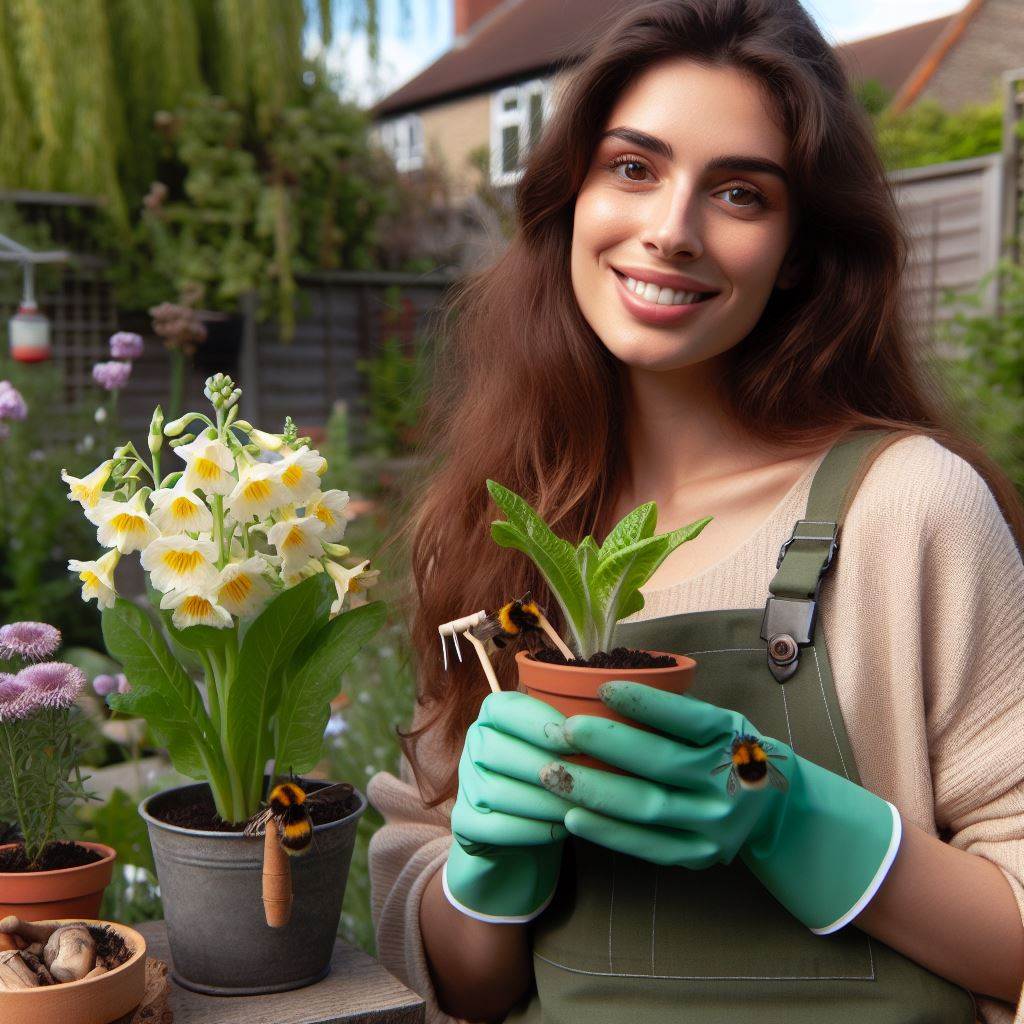Introduction
Let’s Explore Balcony Farming Urban Agriculture Tips.
Balcony farming is the practice of growing crops and plants on a small space like a balcony or terrace.
With the increasing popularity of urban agriculture, balcony farming has become an essential part of urban areas.
It offers various benefits to both individuals and the environment.
Benefits of Balcony Farming
- Improved food security: By growing their own crops, individuals can ensure a steady supply of fresh and nutritious food.
- Reduced carbon footprint: Balcony farming reduces the need for transporting food from distant farms, thus minimizing carbon emissions.
- Utilization of small spaces: Balconies provide an opportunity for individuals in urban areas to make the most of their limited space.
- Better air quality: Plants in balcony gardens act as natural air filters, purifying the surrounding air and reducing pollution levels.
- Stress relief: Gardening has been proven to have a positive impact on mental health, offering a therapeutic escape from the bustling city life.
- Cost savings: Balcony farming can save money on groceries, as individuals can grow their own vegetables, herbs, and fruits.
- Community engagement: Balcony farming can foster a sense of community by encouraging neighbors to exchange tips and harvests.
Therefore, balcony farming plays a crucial role in urban agriculture, offering numerous benefits to individuals and the environment.
It provides an opportunity to grow fresh produce, reduce carbon footprint, improve air quality, and promote community engagement.
With the increasing popularity of urban agriculture, balcony farming is becoming an essential practice in urban areas.
Choosing the right plants for balcony farming:
Consideration of available space and sunlight
When deciding on plants for your balcony farm, take into account how much space you have available and how much sunlight your balcony receives.
It’s important to choose plants that can thrive in the limited space and sunlight conditions.
List of suitable plants for balcony gardens (herbs, vegetables, fruits)
There are various plants that are perfect for balcony gardening, including herbs like basil, mint, and parsley.
For vegetables, you can consider tomatoes, peppers, lettuce, and carrots.
Fruits like strawberries and dwarf varieties of citrus trees are also suitable for balcony gardens.
Importance of selecting plants that thrive in containers
Since balcony farming usually involves planting in containers, it’s crucial to select plants that can adapt to this environment.
Look for plants that have compact growth habits and are specifically bred for container gardening.
Tips for selecting disease-resistant varieties
To ensure the success of your balcony farm, it’s recommended to choose disease-resistant plant varieties.
Transform Your Agribusiness
Unlock your farm's potential with expert advice tailored to your needs. Get actionable steps that drive real results.
Get StartedLook for plants labeled as resistant to common diseases in your area, as this will reduce the risk of plant infections and improve overall plant health.
When considering plants for your balcony farm, it’s essential to keep in mind the limited space and sunlight available.
While herbs like basil, mint, and parsley are great choices for small balcony gardens, vegetables such as tomatoes, peppers, lettuce, and carrots can also thrive in containers.
Additionally, consider adding fruits like strawberries and dwarf varieties of citrus trees to add a touch of freshness to your balcony farm.
Plants that thrive in containers are crucial for balcony farming since they need to adapt to restricted space and limited soil volume.
Compact growth habits and plants specifically bred for container gardening are ideal choices to maximize space efficiency and overall plant health.
To prevent the risk of diseases and ensure a successful balcony farm, selecting disease-resistant plant varieties is highly recommended.
Plants labeled as resistant to common diseases in your area will have a higher chance of survival and thriving conditions.
Disease-resistant plants will not only reduce the chance of plant infections but also require less maintenance and produce healthier harvests.
Remember to regularly assess your available space and sunlight to optimize plant growth.
Consider the diversity of plants you can grow in containers and select disease-resistant varieties to create a thriving balcony farm.
By carefully choosing the right plants, you can enjoy the benefits of fresh produce and a vibrant green space in your urban balcony.
Read: Soil Health: Key to Thriving Gardens
Essential equipment for balcony farming
In order to successfully grow plants and vegetables on your balcony, it is essential to have the right equipment.
Here are some key items you will need:
Types of containers for balcony gardens
There are various container options available for balcony gardens.
Pots are a popular choice as they are versatile and easy to move around. Planters provide a larger space for growing multiple plants.
Vertical systems, such as hanging baskets or wall-mounted planters, are perfect for maximizing space in small balconies.
They allow you to grow plants vertically, utilizing the height of your balcony.
Importance of good quality soil and compost
Using high-quality soil and compost is crucial for providing your plants with the necessary nutrients and a well-draining environment.
Avoid using regular garden soil, which may not be suitable for containers.
Look for soil mixes specifically formulated for containers, such as potting soil or mixtures that contain perlite or vermiculite.
Adding compost will further enrich the soil and promote healthy plant growth.
Tools required for maintenance
A few essential tools will make your balcony gardening tasks much easier.
Showcase Your Farming Business
Publish your professional farming services profile on our blog for a one-time fee of $200 and reach a dedicated audience of farmers and agribusiness owners.
Publish Your ProfileA trowel is useful for planting and digging, while a watering can helps you control the amount of water your plants receive.
Invest in a good pair of shears for maintaining your plants’ shape and removing dead or unwanted foliage.
These tools will ensure that your balcony garden stays neat and well-maintained.
Introduction to irrigation systems suitable for balconies
One of the biggest challenges in balcony farming is providing adequate water to your plants.
Installing an irrigation system can help automate the watering process and ensure plants receive consistent moisture.
Drip irrigation is an effective option that delivers water directly to the plants’ roots, reducing water wastage.
Self-watering systems, such as those with built-in reservoirs, are also convenient and efficient.
Most importantly, having the right equipment is essential for successful balcony farming.
Choose containers that suit your space and consider installing an irrigation system.
Use high-quality soil, compost, and basic tools for maintenance, and watch your balcony transform into a thriving urban garden.
Read: Backyard Permaculture: Sustainable Techniques

Maximizing space on your balcony
Maximizing space on your balcony is essential for successful urban agriculture.
With limited square footage, it’s important to utilize every inch efficiently.
Here are some tips on how to make the most of your balcony for farming:
Utilizing vertical space with trellises or hanging baskets
When space is limited, going vertical is a great option.
Install trellises or hanging baskets on your balcony walls or railings to grow climbing plants like tomatoes, cucumbers, or beans.
This not only saves space but also adds a beautiful aesthetic to your balcony.
Choosing compact plant varieties
Opt for compact plant varieties that don’t take up much space but still provide a good yield.
Look for dwarf or mini versions of your favorite vegetables or herbs.
These plants can be easily grown in containers or small pots, making them perfect for balcony farming.
Incorporating shelves or racks for additional planting space
Add shelves or racks to your balcony to create more planting space.
These can be used to hold various potted plants or even create a small vertical garden.
Make sure the shelves are sturdy enough to support the weight of the plants and their containers.
Using walls and railings for hanging plants or vine crops
Take advantage of the walls and railings on your balcony by hanging plants or growing vine crops.
Use hooks or hangers to suspend planters or containers.
This way, you can grow cascading plants like strawberries or trailing vines such as grapes, maximizing your growing area.
By implementing these space-maximizing techniques, you can transform your balcony into a productive urban farm.
Don’t let the limited space deter you from pursuing your gardening dreams.
With a bit of creativity and planning, you can cultivate a thriving balcony garden.
Read: Edible Landscaping: Beauty and Bounty
You Might Also Like: Small-Scale Farming: Essential Machinery
Providing proper care and maintenance
Guidelines for watering balcony plants:
- Water plants thoroughly, allowing excess water to drain out of the pots.
- Check the soil moisture regularly and water when the top inch feels dry.
- Avoid overwatering or letting plants sit in waterlogged soil, as it can cause root rot.
- Consider using self-watering containers or drip irrigation systems for efficient watering.
- Keep in mind that different plant varieties have different water requirements, so adjust watering accordingly.
Importance of regular fertilization and soil amendments
- Balcony plants have limited access to nutrients, so regular fertilization is crucial for their growth.
- Choose a balanced, slow-release fertilizer suitable for container plants to provide essential nutrients.
- Apply fertilizer according to the package instructions, avoiding excessive use that can harm plants.
- Additionally, enrich the soil by adding organic matter like compost or well-rotted manure.
- Soil amendments help improve soil structure, retain moisture, and provide a steady supply of nutrients.
Common pests and diseases in balcony gardens
- Aphids, whiteflies, and spider mites are common pests that can infest balcony plants.
- Fungal diseases like powdery mildew and leaf spot can also affect plant health.
- Recognize the signs of pest and disease infestations, such as yellowing leaves, stunted growth, or distorted foliage.
- Take preventive measures like ensuring proper airflow and regular cleaning of foliage to reduce pest and disease risks.
- In severe cases, consider using organic or chemical remedies to control pests and treat plant diseases.
Strategies for organic pest control and prevention
- Encourage beneficial insects like ladybugs, lacewings, and predatory mites that feed on pests.
- Attract pollinators like bees and butterflies by planting nectar-rich flowers near your balcony garden.
- Use companion planting techniques to repel pests. For example, planting marigolds can deter aphids.
- Handpick larger pests like caterpillars or slugs and drop them into a bucket of soapy water.
- Apply organic pest control methods like neem oil or insecticidal soap following the recommended instructions.
By following these guidelines, you can ensure that your balcony plants thrive and provide you with a beautiful and bountiful urban garden.
Remember to regularly monitor your plants for any signs of distress or nutrient deficiencies and adjust your care practices accordingly.
Happy balcony gardening!
Read: Soil pH Matters: Testing and Adjusting Tips
Creating a sustainable balcony garden
Importance of using organic and sustainable gardening practices
- Organic and sustainable gardening practices ensure a healthy and chemical-free environment for your plants.
- Avoiding the use of synthetic fertilizers and pesticides helps to promote biodiversity and protect pollinators.
- These practices also reduce the risk of contaminating water sources and harming wildlife.
- By using organic methods, you contribute to building healthy soil and creating a balanced ecosystem on your balcony.
Introduction to composting for apartment dwellers
- Composting is a great way to recycle kitchen scraps and produce nutrient-rich soil for your plants.
- Apartment dwellers can use small-scale composting methods, such as vermicomposting or bokashi composting.
- Vermicomposting involves using worms to break down organic waste, while bokashi composting relies on fermentation.
- These methods are ideal for indoor use and produce compost quickly without any foul odors.
- Composting not only reduces waste but also saves money on buying expensive soil amendments.
Recycling and repurposing materials for gardening purposes
- Look for creative ways to repurpose household items for your balcony garden, reducing waste and saving money.
- Use old containers, such as buckets or plastic bottles, as planters.
- Repurpose wooden pallets to create vertical gardens or shelving units for your plants.
- Upcycle old furniture by transforming them into unique plant stands or herb gardens.
- Get creative with your imagination and give a second life to items that would otherwise end up in the landfill.
Implementing rainwater harvesting techniques
- Utilize rainwater instead of tap water to irrigate your plants, reducing water consumption.
- Install a rain barrel or collect water in containers placed strategically on your balcony.
- Use a watering can or a drip irrigation system to distribute collected rainwater to your plants.
- Rainwater is free of chlorine and other chemicals found in tap water, which can be harmful to plants.
- Implementing rainwater harvesting techniques helps conserve water resources and saves money on utility bills.
By following these tips for creating a sustainable balcony garden, you can enjoy the benefits of urban agriculture while minimizing your environmental impact.
Embracing organic and sustainable gardening practices, composting, recycling materials, and harvesting rainwater all contribute to a healthier and more eco-friendly approach to balcony farming.
Start small, be creative, and watch your balcony garden thrive while making a positive difference in the world.
Conclusion
Balcony farming offers numerous benefits and exciting possibilities for urban agriculture.
With limited outdoor space, individuals can still grow their own fresh produce and herbs.
Showcase Your Farming Business
Publish your professional farming services profile on our blog for a one-time fee of $200 and reach a dedicated audience of farmers and agribusiness owners.
Publish Your ProfileIt promotes sustainability by reducing food miles and minimizing the use of pesticides.
Balcony gardens also provide a green space, improving air quality and enhancing the aesthetics of urban areas.
Furthermore, balcony farming can increase food security as it allows people to have access to nutritious food.
By growing their own food, individuals can become more self-sufficient and less reliant on traditional food sources.
It is an empowering and rewarding experience to see seeds grow into flourishing plants.
To get started, readers can start with simple plants like herbs, tomatoes, or lettuce.
They can utilize containers, vertical gardening techniques, and composting to optimize their small space.
The future of urban agriculture looks promising with the potential to transform our cities into more sustainable and resilient environments.
As more people engage in balcony farming, the impact on food security and sustainability will only grow.
We have the power to contribute to a greener and healthier future by utilizing our balconies.
So, let’s grab our gardening tools and start our own mini-farms on our balconies!




